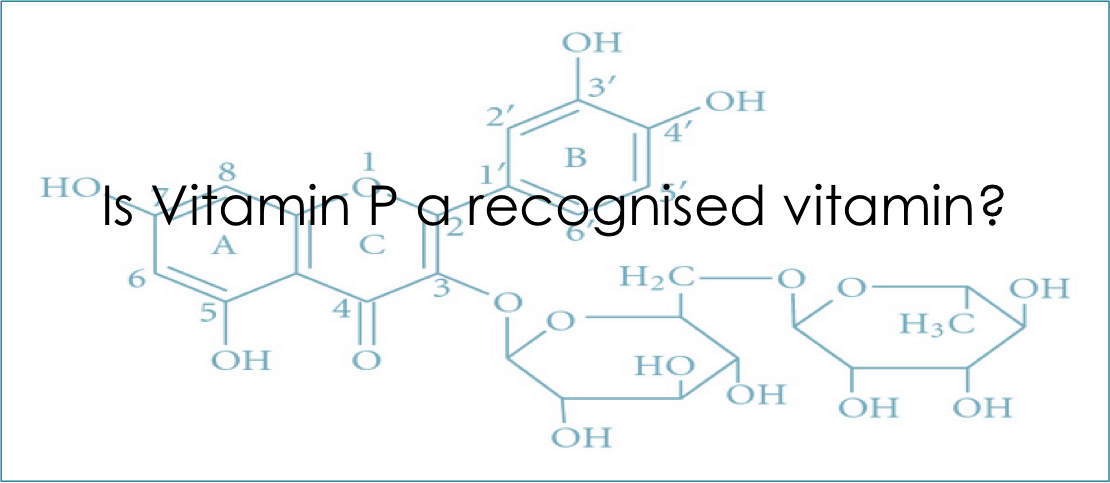Todays post is about Vitamin P. I came across the reference to Vitamin P while writing my last post about Buckwheat.
It is something that isn’t mentioned often, so I thought it would be a good topic to look at.
What is Vitamin P?
It turns out that vitamin P is not actually a recognised ‘vitamin’.
It is actually a term that was used to name a group of plant compounds called flavonoids. When first discovered by scientists in 1930, they were thought to be a new type of vitamin and, therefore, named vitamin P. This name is no longer used, as it was determined that flavonoids are not vitamins.
The actual word ‘Vitamin’ comes from the Latin word ‘vita’ meaning ‘life’. It was originally thought that vitamins contained the essential building blocks of life and in the early 1900s the word was ‘vitamine’. Eventually, as scientific understanding of these substances advanced, the word was changed to vitamin.
Though flavonoids have been found to be extremely beneficial, they are however not ‘vital for life’.
There are several types of flavonoids found in fruits, vegetables, tea, cocoa, and wine. They give certain foods their colour; provide plants with protection from ultraviolet (UV) rays and infection. There are currently over 6,000 known flavonoids.
The term ‘vitamin P’ is now more commonly used in reference to Rutin, one of the most important and well-researched flavonoids. This citrus flavonoid, like all flavonoids, is an antioxidant.
More about Rutin
The name ‘rutin’ comes from the plant Ruta graveolens, which also contains rutin.
Rutin or rutoside, is a highly bioavailable flavonoid, found in the pigments of several plants, such as passionflower and tea. It is also widely distributed in vegetables, fruits, and medicinal herbs such as asparagus, apples and buckwheat. Further, buckwheat is considered to be one of the best dietary sources of rutin.
What are the health benefits?
Rutin is firstly a flavonoid, which are well known for their antioxidant properties.
However, scientists have found that rutin has various pharmacological properties with several uses in different traditional and complementary medicines.
Specific parts of its molecule interact with different systems in the body, such as the brain, heart, or blood vessels. This means it has numerous beneficial effects.
Studies found that rutin also enhances the action of Vitamin C, supports blood circulation, helps alleviate allergies, viruses, or arthritis and other inflammatory conditions.
Rutin promotes collagen production; helps strengthen blood vessels and improve circulation.
It is useful for treating conditions affecting vessels, such as hemorrhoids, varicose veins, and spider veins.
In addition, some research suggests that rutin may prevent the formation of blood clots that could help prevent heart disease and stroke.
It has been found to be antibacterial, anti-protozoal, anti tumour, anti-inflammatory, anti-allergic, antiviral, antispasmodic, and antihypertensive, just to name a few.
With this information in mind, it seems like a good idea to boost your rutin intake every day. The easiest way to do this is by eating buckwheat, unpeeled apples, figs, or asparagus.
Till the next post,
Live clean n prosper.
(Sources – Wikipedia, Science Direct, National Centre for Biotechnical Information, Healthline)

